'We need young people to know there's no safe place to stab someone'
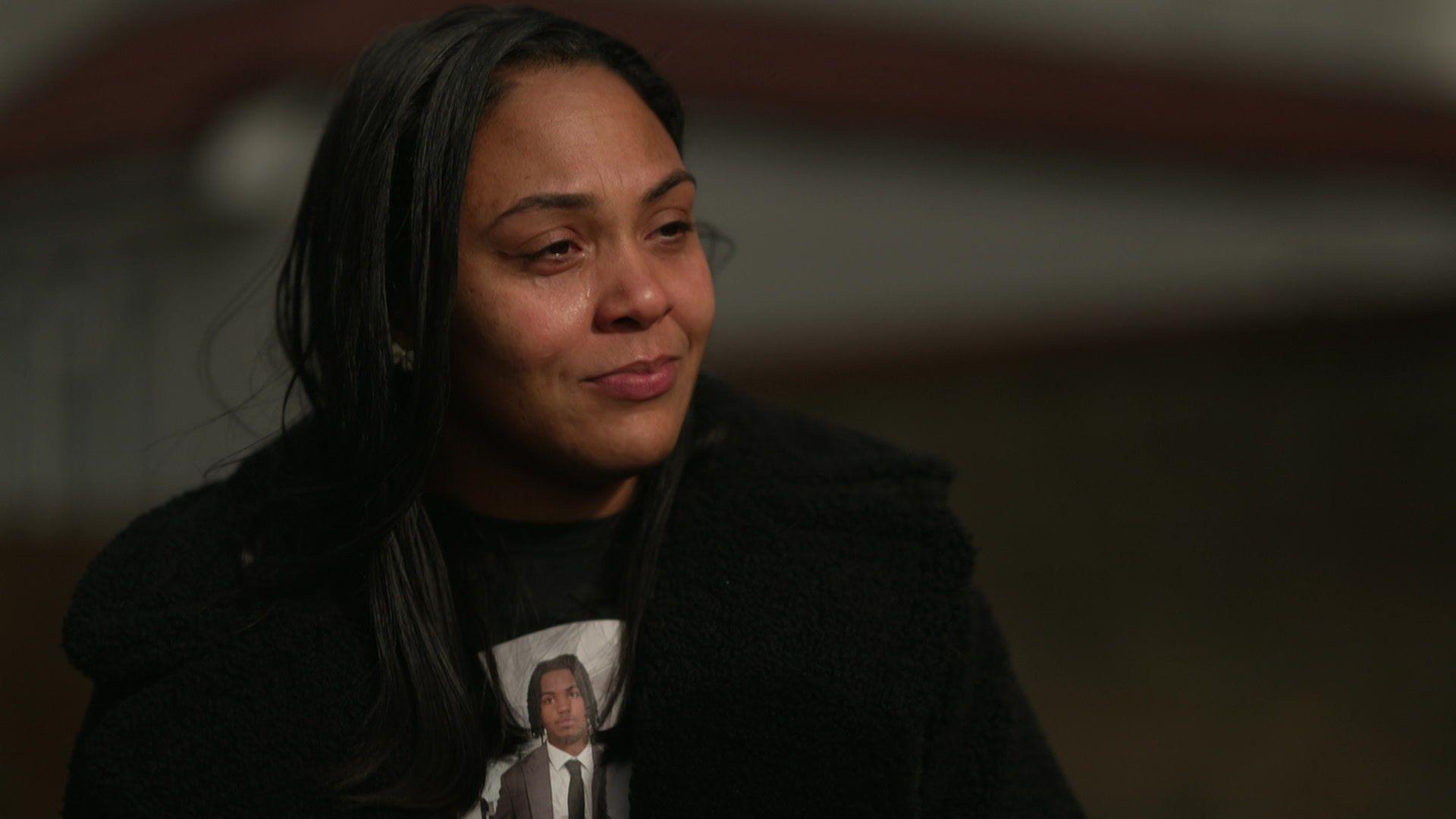
Katherine Johnson is trying to raise awareness of the dangers of carrying knives after her son, Kamari, was murdered
- Published
A mother whose 16-year-old son was murdered with a machete has called for more education to challenge a "deadly myth" among young people that there is a "safe place" to stab someone.
Kamari Johnson was attacked in a row over a stolen moped in Bourne Avenue, Hayes, in west London in May last year.
His story is featured in a campaign video by the charity StreetDoctors, being shown in hundreds of cinemas across the UK, which aims to teach teenagers about the dangers of carrying a weapon.
Kamari's mother Katherine Johnson said her son's "senseless" killing had been "a split decision" made by the perpetrator, that had "devastated so many lives."
The film, The Fatal Question, which was created alongside the marketing agency Saatchi & Saatchi, asks a group of school children from London to consider which part of the body would be a safe place to stab someone, before revealing that any injury can be deadly.
"Unfortunately, a lot of young people carry knives because they feel unsafe," explained StreetDoctors chief executive officer Martin Tilbury.
"They think, as a bit of protection, if they do get into an altercation they might injure somebody in a place of the body where it doesn't cause harm. What the campaign does is to explain that there is no safe place to stab somebody."
He believes content on social media is fuelling fear among young people.
"They're worried other people are carrying a knife, so they want to carry one for their own safety."
He said the film had been shown in hundreds of cinemas across the UK over the last two months.
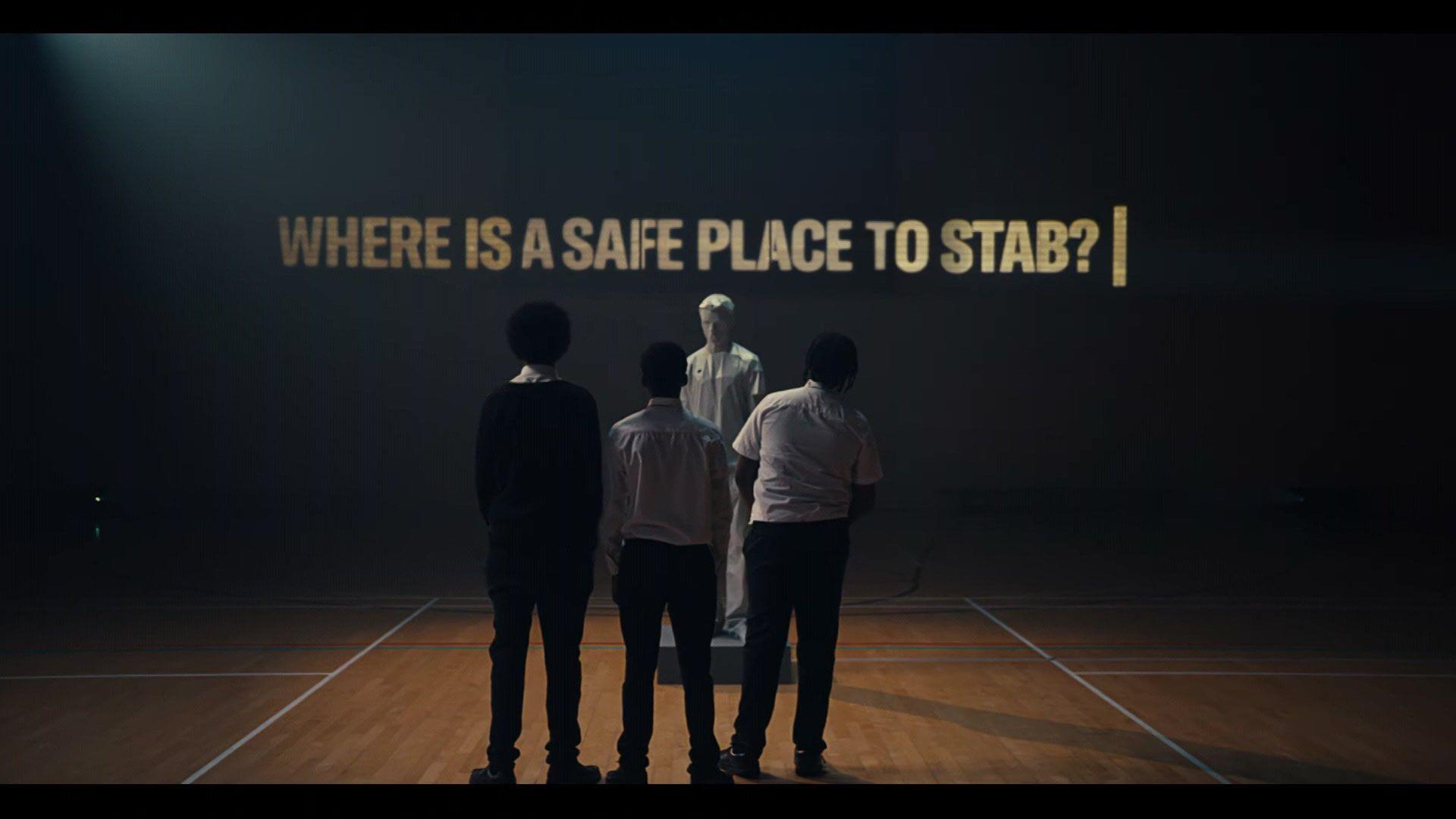
The film, The Fatal Question, aims to educate young people about the dangerous myths around carrying knives
Ms Johnson said she had been shocked to hear that children were searching online for information about where a safe place to stab someone would be.
"But you have to think about their mindset. The majority I think are looking because they feel unsafe, they don't want to harm somebody.
"We need to educate young people, there's no safe place to stab, and they need to see how it affects people if they've made those choices," she said.
She showed me the spot near her home where Kamari died, describing how she'd run to the scene after his friends banged on her door at about 13:30 BST, telling her he had been stabbed.
She said she could see Kamari lying on the ground as emergency services tried to save his life "but I could tell he had gone".
"My legs gave way at the bus stop," she said.
"There were parents walking past with their children. Even a lovely young lady tried to save my son's life by taking off her daughter's jumper. Broad daylight. And it didn't make any difference."
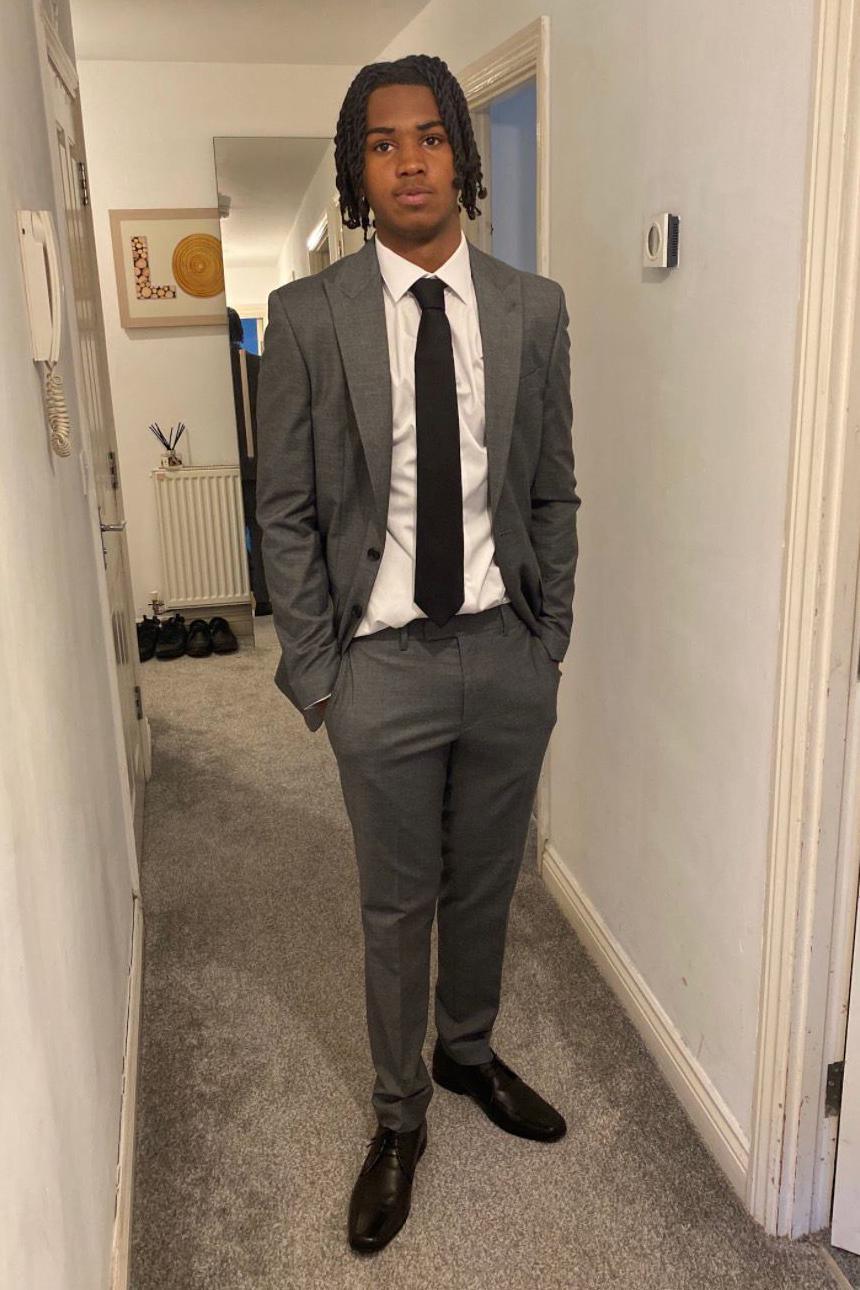
Sixteen-year-old Kamari Johnson was due to study electrical engineering at college
Kamari's killer was Nabil Mezali, who was aged 17 at the time.
During his trial, the court heard how Mezali had agreed to buy a moped from Kamari for £180, but when they met to complete the sale, Kamari had taken his cash and driven away.
Minutes later, Mezali walked to Kamari's house to confront him, intent on getting the bike, and stabbed him in the chest with a 30cm (12in) machete.
Although Kamari managed to flee on the moped, he collapsed minutes later and died on the street.
Det Ch Insp Alex Gammampila, who led the investigation, previously said the case illustrated "how petty disagreements can spiral into murderous violence when knives are carried".
"Regardless what choices my son made, or the perpetrator, this should not have taken my son's life," said Ms Johnson. "It's heart-breaking."
Mezali was jailed for life with a minimum of 20 years.
During his trial, he could not be named for legal reasons because of his age, but Ms Johnson is pleased those restrictions have been lifted since he turned 18.
"It's part of saying, there are consequences for your actions, if you choose to take someone's life, it will stick for you forever," she said.
However, alongside punishment, she believes young people need more education to prevent them picking up a knife in the first place.
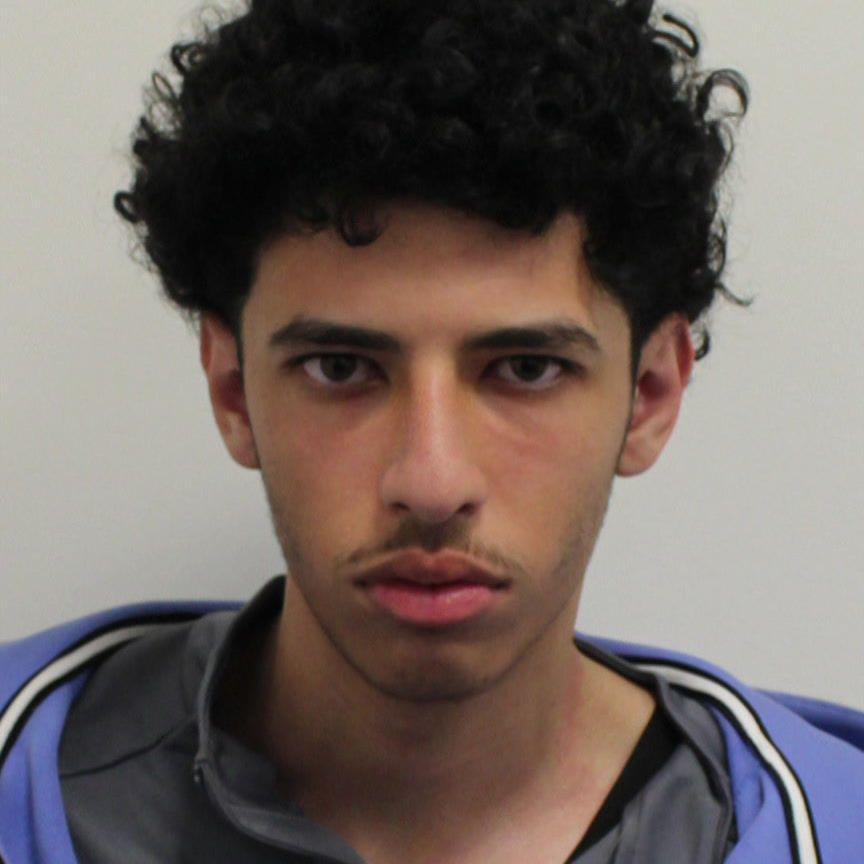
Nabil Mezali was found guilty of Kamari Johnson's murder jailed for life with a minimum term of 20 years
Last year, London recorded the lowest number of teenage homicides in more than a decade, according to Metropolitan police data - almost a third of what it was in 2021, when 30 teenagers lost their lives.
The mayor's Violence Reduction Unit said there had been a 13% reduction in hospital admissions of under-25s for knife assaults in London in the 12 months to August 2025.
However, Ms Johnson said she was not reassured by the data.
Among the children featured in The Fatal Question campaign is Damilola Taylor, the 10-year-old schoolboy who died after being stabbed in the leg in 2000. Almost 25 years on, does she feel any hope for ending knife crime?
"I definitely have hope. There are so many people who want to make a difference. But it doesn't feel like it has got better," she said.
'Knife crime isn't just a big city problem'
- Published4 November
Child violent crime suspects 'getting younger'
- Published18 June
'Young people are scared, even those carrying knives'
- Published25 September 2024
The mass stabbing onboard a train in Huntingdon in Cambridgeshire last month prompted calls from shadow home secretary Chris Philp for police to "triple" the use of stop-and-search to apprehend people carrying knives.
But Ms Johnson said she believed the measure would cause "division".
"There's not one thing that will help stop knife crime, but it's got to start with education. And helping young people understand their emotions, we have to learn to deal with our emotions differently."
She told me that following Kamari's death she had reached out to his friends, concerned about how it could impact them.
"We see too many times revenge, retaliation. So my aim was to make a safe place for these young people to go."
She said some had returned to school or college, or found jobs.
"With guidance, with education, we can make such a big difference, instead of them just being left to deal with it themselves. We keep saying 'they're children', so where's the help?"
What would she say to a young person, who is considering carrying a knife?
"Talk to somebody. You don't have to tell them everything you've got going on, but just express what you're going through and it will make a difference," she said.
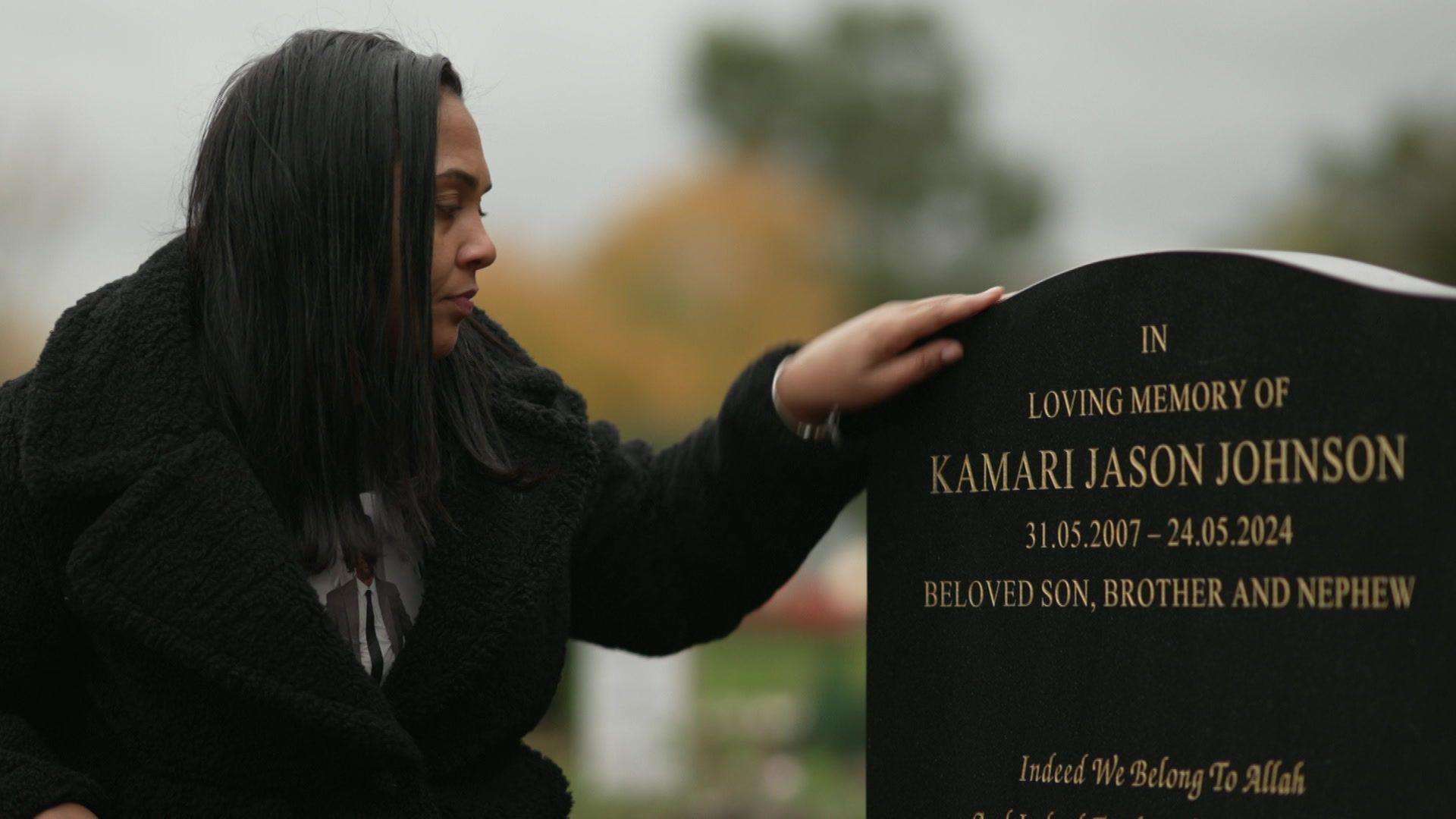
Katherine Johnson said tackling knife crime needs to start with educating young people about the dangers and supporting them into better opportunities
Kamari was her only child.
"It was just me and Kamari. He brightened my world. He loved his music, played a bit of football. He was just lovely," she said.
One photo shows him smiling proudly, the first time he had worn a suit for his school graduation.
Ms Johnson explained he was about to start studying electrical engineering at college.
"He had so much potential, he could have done anything he put his mind to. All of that is gone."
She showed us the peaceful spot in the cemetery where her son is buried. Among the items placed at his grave are a number plate bearing his initials and a small toy car.
Ms Johnson said she is "lucky" for the 16 years she had with her son, but that she no longer finds "much joy in life."
She's determined the campaign reaches as many young people as possible.
"You could stay in bed all day and be miserable. I need to make the change. I keep saying, I don't want it to happen to anyone else, so I need to do my bit," she said.
"Kamari doesn't get the chance to show anybody else his potential. I need to keep his name alive."
Listen to the best of BBC Radio London on Sounds and follow BBC London on Facebook, external, X, external and Instagram, external. Send your story ideas to hello.bbclondon@bbc.co.uk, external